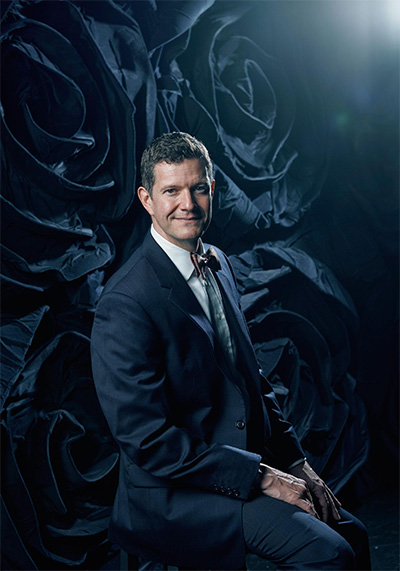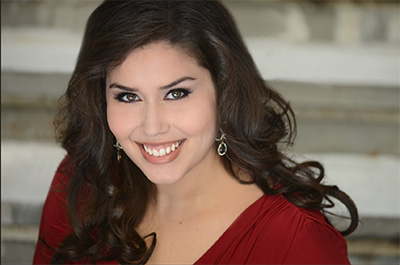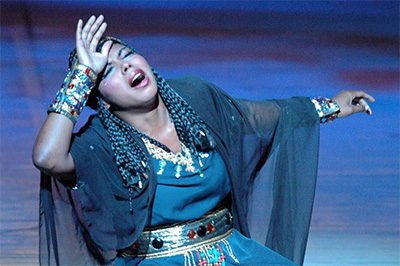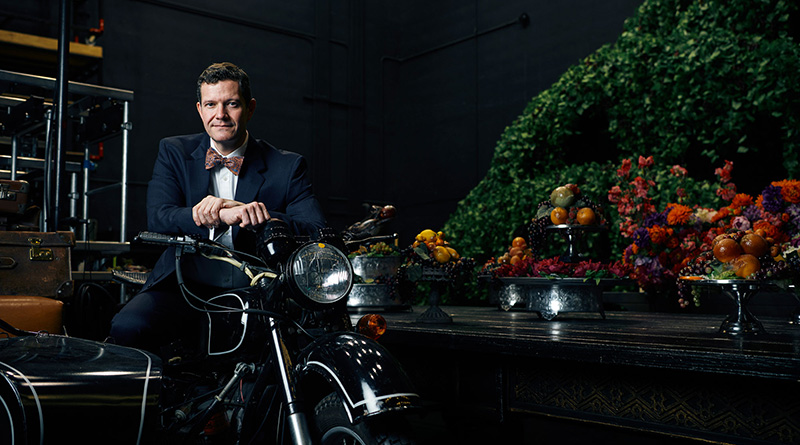Ian Derrer assumes the role of Dallas Opera’s new General Director and CEO in July.
Photo by Jonathan Zizzo.

“In case you haven’t gotten it by now: I love singing! I LOVE great singing!” So enthuses Ian Derrer, the man who takes the reins in July as general director and CEO of one of America’s most important opera companies, Dallas Opera. The comment is hilariously facetious, as his passion for opera is one of many things that become glaringly obvious if you spend any time talking with the affable 43-year-old. As you get to know Derrer’s story, two more things become glaringly obvious. From the very start, opera chose him as much as he chose it. And, he was destined for Dallas!
This is a homecoming for Derrer (for the record, it’s pronounced DAIR-er). No matter where life and career take him, Dallas keeps calling him back, most recently for a two-year stretch as artistic administrator from 2014 to 2016. Derrer credits Music Director Emmanuel Villaume for that appointment: “[Emmanuel Villaume] knew me from Santa Fe and Chicago, and he knew that in addition to my production experience I had this artistic side as well,” explains Derrer. “Great opera company that [Dallas] is, it was the offer of a lifetime at that point for me.”
Villaume’s is a name that comes up frequently in conversation with Derrer, the most recent in a long list of important figures in opera who have shaped and influenced his life and career going all the way back to childhood.
Derrer was born in Rockport, Illinois. His parents, singers both, moved the family to the Charlotte, North Carolina area when Ian was six months old. Both parents sang in the Charlotte Opera chorus, where Ian become indoctrinated to opera at a very young age. “My parents were always going to rehearsal,” he recalls. “I was listening to them prepare their chorus parts. My mother would have to use rehearsal tapes that she would play over and over in the car, so it slowly just began to envelop me. Eventually my parents just began taking me to rehearsals; I think that was to keep from having to hire a baby sitter.”
Once young Ian began attending rehearsals, the die was cast. “I’d be in these rehearsals and eventually they’d say ‘Hey we need a street urchin in this opera.’ They’d enlist me and I’d be the second kid on the left. The first opera I remember seeing in Charlotte was The Magic Flute, and I became enchanted immediately. I think I was around 5. Later I sang the role of Gherardino in Puccini’s Gianni Schicchi. It’s a one-liner. The kid comes in and says ‘Hey get ready, he’s on his way,’ and then he’s reprimanded for breaking into the adult conversation and scurries out. And that was how it all began.”

This newfound passion was further fueled by his father’s extensive opera record collection, which began as a gift from a relative who knew George London, and passed along the great Canadian bass-baritone’s own recordings to the Derrer family. His favorites included London’s classic recording of Boris Godunov and a recital disc of Duparc songs. “There’s nothing like the George London voice,” says Derrer, “the size, the color, the innate beauty.” He was also drawn to American bass-baritone Norman Treigle’s recordings of Boito’s Mefistofele and Offenbach’s The Tales of Hoffmann. With these iconic bass-baritone voices figuring so prominently in his formative operatic life, lo and behold when Ian began taking private voice lessons in high school, he himself was a bass-baritone.
The private lessons led to a spot in the University of North Carolina School of the Arts, an immersive six-week Summer program prestigious enough to attract college recruiters. This is where Dallas came calling for Ian Derrer for the first time. He sang for a recruiter from Southern Methodist University and came away with a scholarship to study voice. “I looked at the faculty list at SMU and I was immediately drawn to the name of Thomas Hayward,” says Derrer.
Originally named Thomas Tibbett, Hayward changed his name to avoid the appearance of riding the coattails of his celebrated uncle, the great American baritone Lawrence Tibbett. Familiar with Hayward’s career from live recordings, Derrer was eager to study with this man who had sung with the legendary tenor Jussi Bjoerling. “[Hayward] was someone who taught old school technique, who won the Auditions of the Air at The Met with Robert Merrill and had direct connections to the Golden Age of Singing. He instilled in me a lot of things that I still greatly value, like quality of voice and quality of diction, things that came naturally to studying with him.”
So the path to a singing career seemed clear. But then a work study job brought Ian Derrer under the influence of SMU Director of Opera Dejan Miladinović, who opened up for Derrer a whole new world of possibilities and opportunities as a stage director. One such opportunity brought him to Dallas Opera for the first time. “I decided to do some independent study work, asking to be a fly on the wall for an upcoming production of Elektra that they were preparing. They needed an assistant for the incoming director, John Copley…one of those individuals who brings a wealth of knowledge and experience. He showed me what it took to be a good assistant, to be well versed in backstage language, to anticipate things that kept opening up new opportunities for me.”

Continuing to follow wherever his passion led him, Derrer began spending his summers learning production and stage management as a production assistant at the Santa Fe Opera, and pursuing a master’s degree in opera production at Northwestern University. At Northwestern while taking an elective class in Lieder, he found himself singing for famed American mezzo-soprano and Metropolitan Opera star Mignon Dunn. “Well, Honey,” she told him, “you can direct when you’re old. You need to sing now!”
Although he studied with Dunn for many years, it was clear that Derrer’s calling was for the administrative end of opera. As he considered the breadth and depth of knowledge he’d already amassed, Derrer realized “there were not a lot of opera administrators who had experience on the stage, backstage, and who had the love and passion for singing I had.” He gathered more experience as rehearsal music coordinator/administrator at New York City Opera (a “trial by fire” with its 16 productions in repertory) and subsequently Lyric Opera of Chicago, where he became director of production.
He now takes the top job at Dallas Opera, having held that position for the last two years at Kentucky Opera. After taking the Texas company’s temperature, assessing its current state of health (financial and otherwise), Derrer’s number one, overriding priority should come as no surprise. “It’s important to me that we continue on the path of artistic excellence, no question there. You look at the list of singers who made their notable debuts in Dallas. That’s a hell of a list: Callas, Domingo, Caballé … it’s astonishing. There’s a legacy there, and I want to make sure we continue to build on that legacy. That’s where somebody like Emanuel Villaume is an amazing part of the artistic success of this company.”
Although he wasn’t involved in its planning, Derrer is excited about the 2018-2019 season, bookended by what he calls “the great rhapsodic and melodic sweep” of Wagner’s The Flying Dutchman and one of Derrer’s all-time favorites, Verdi’s Falstaff with a stellar cast led by Mark Delavan, Angela Meade and Stephanie Blythe. Looking back at what brought him to this point, Derrer sums it up: “Sometimes you don’t know which way you’re going, but by the time you look back you think ‘well I was on this path the whole time, just didn’t know it.’”
—ERIC SKELLY

